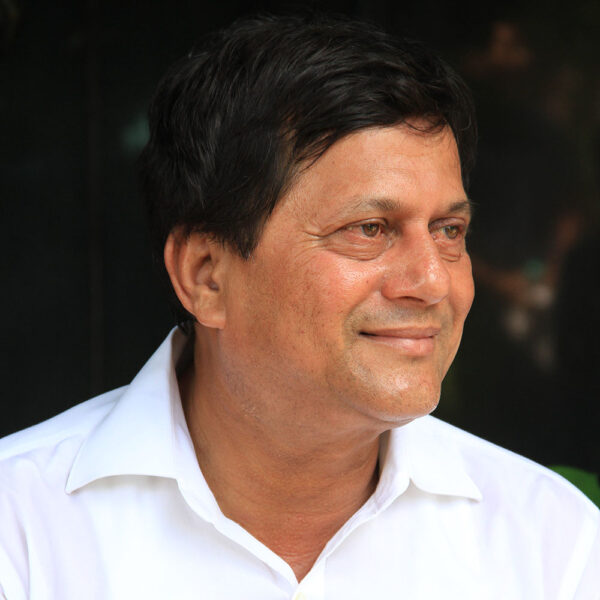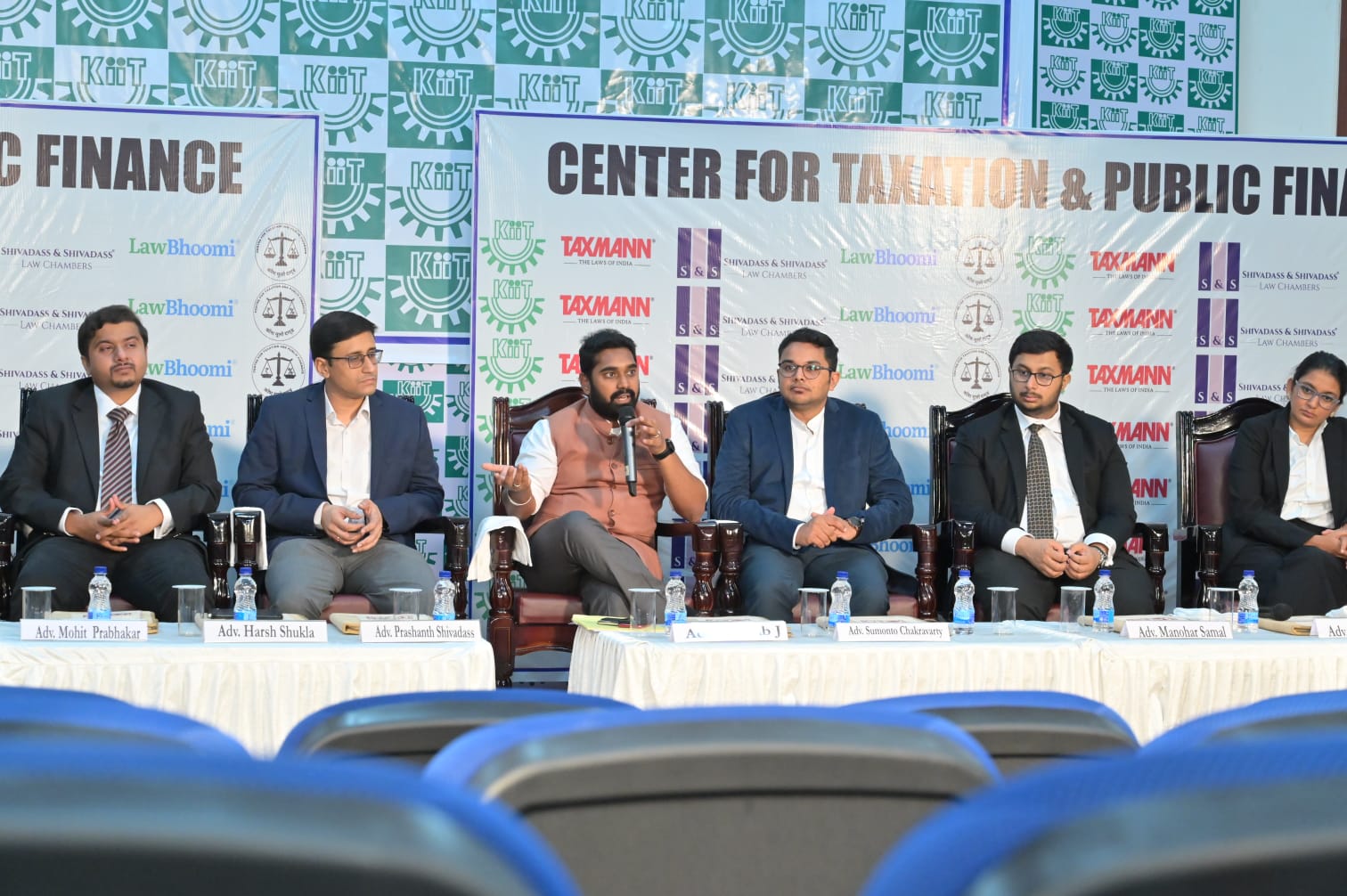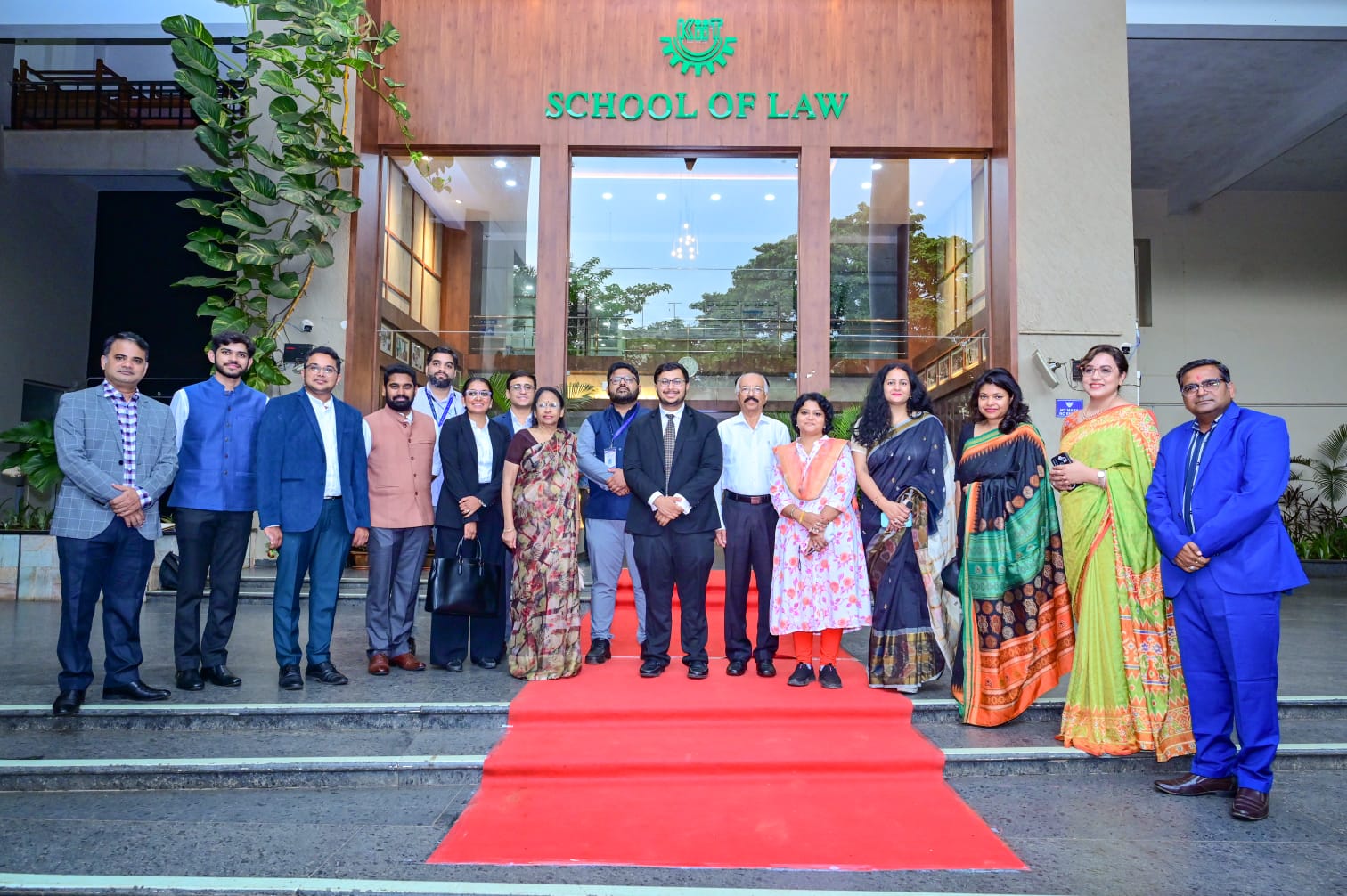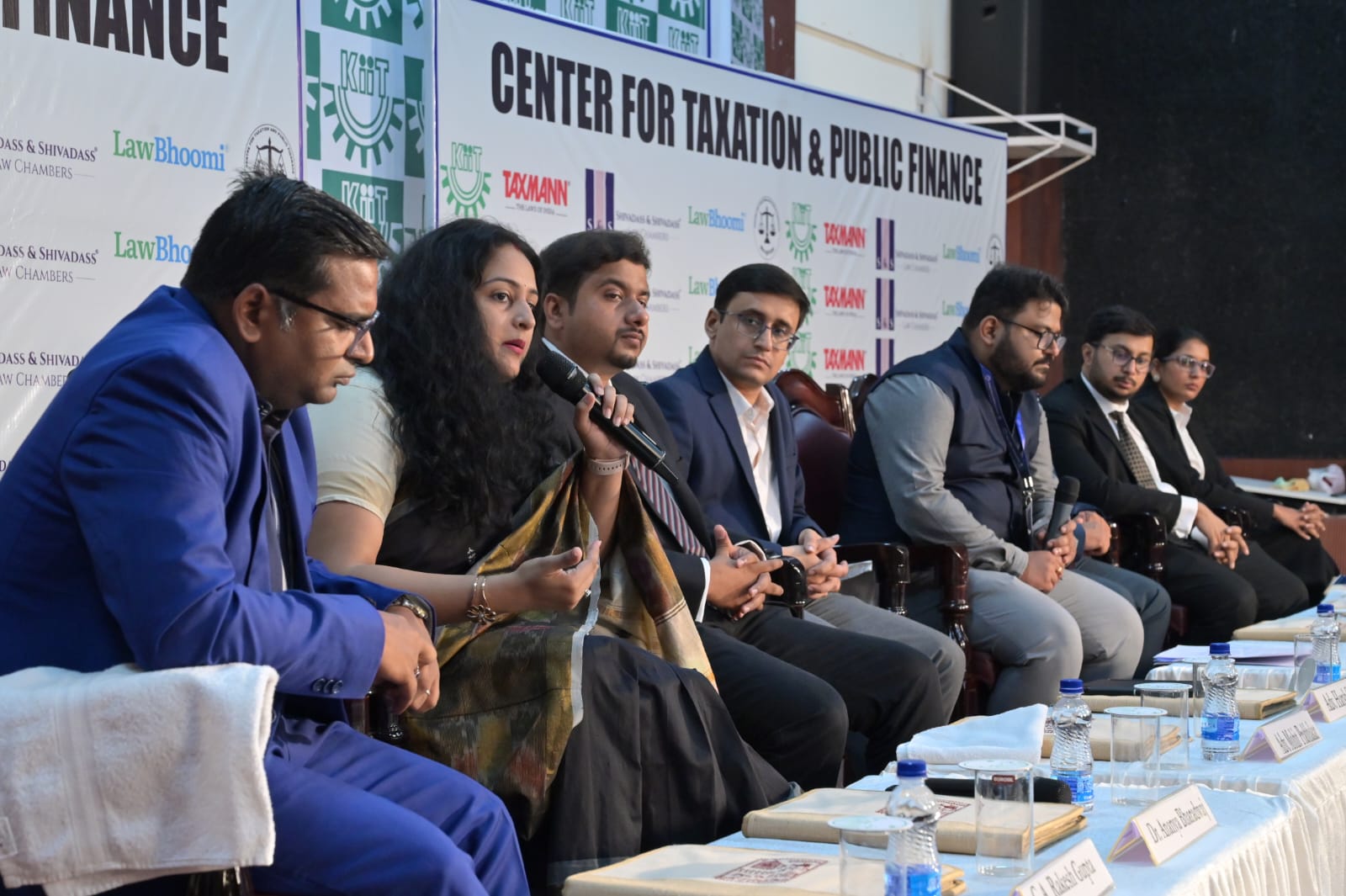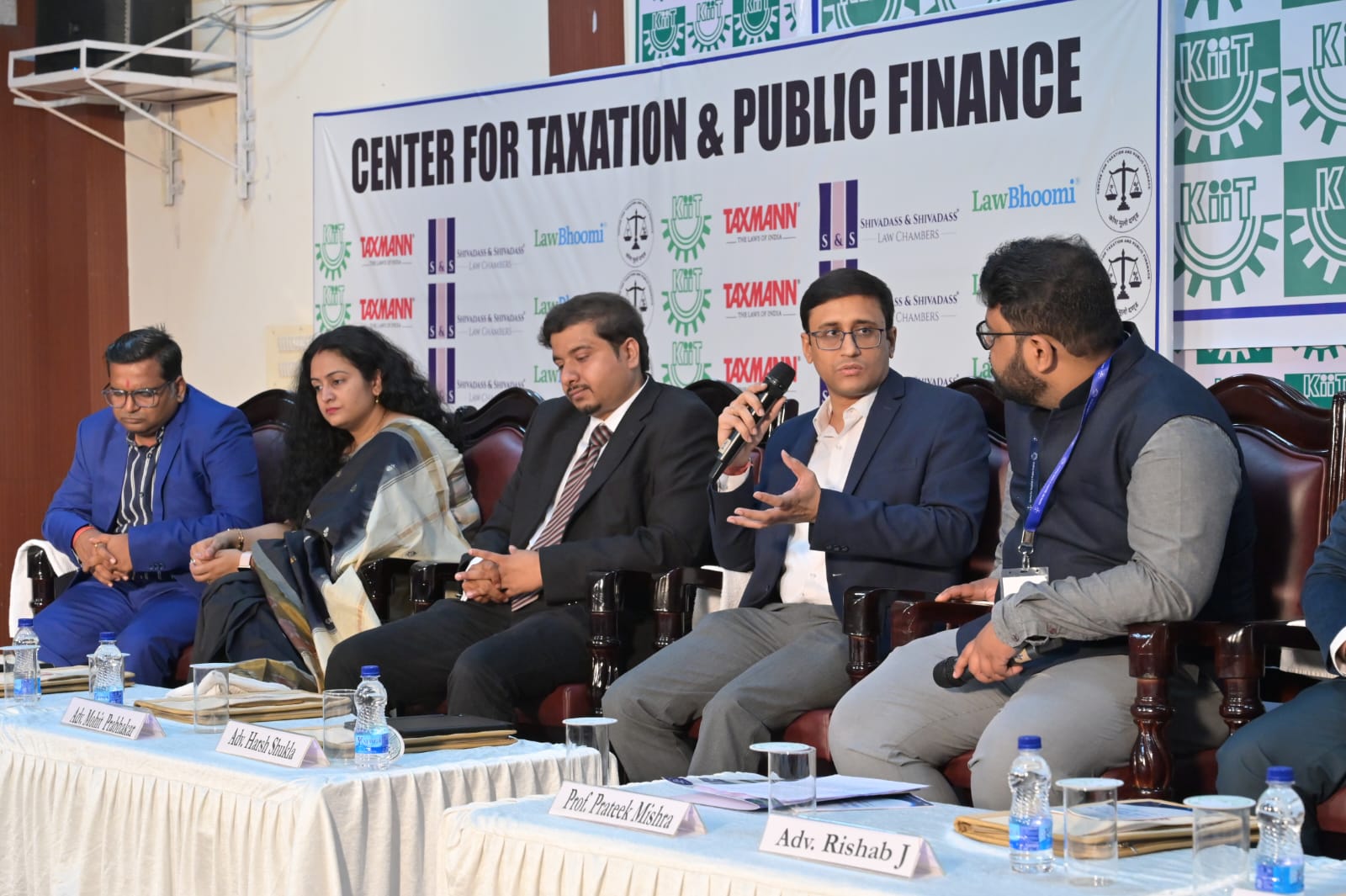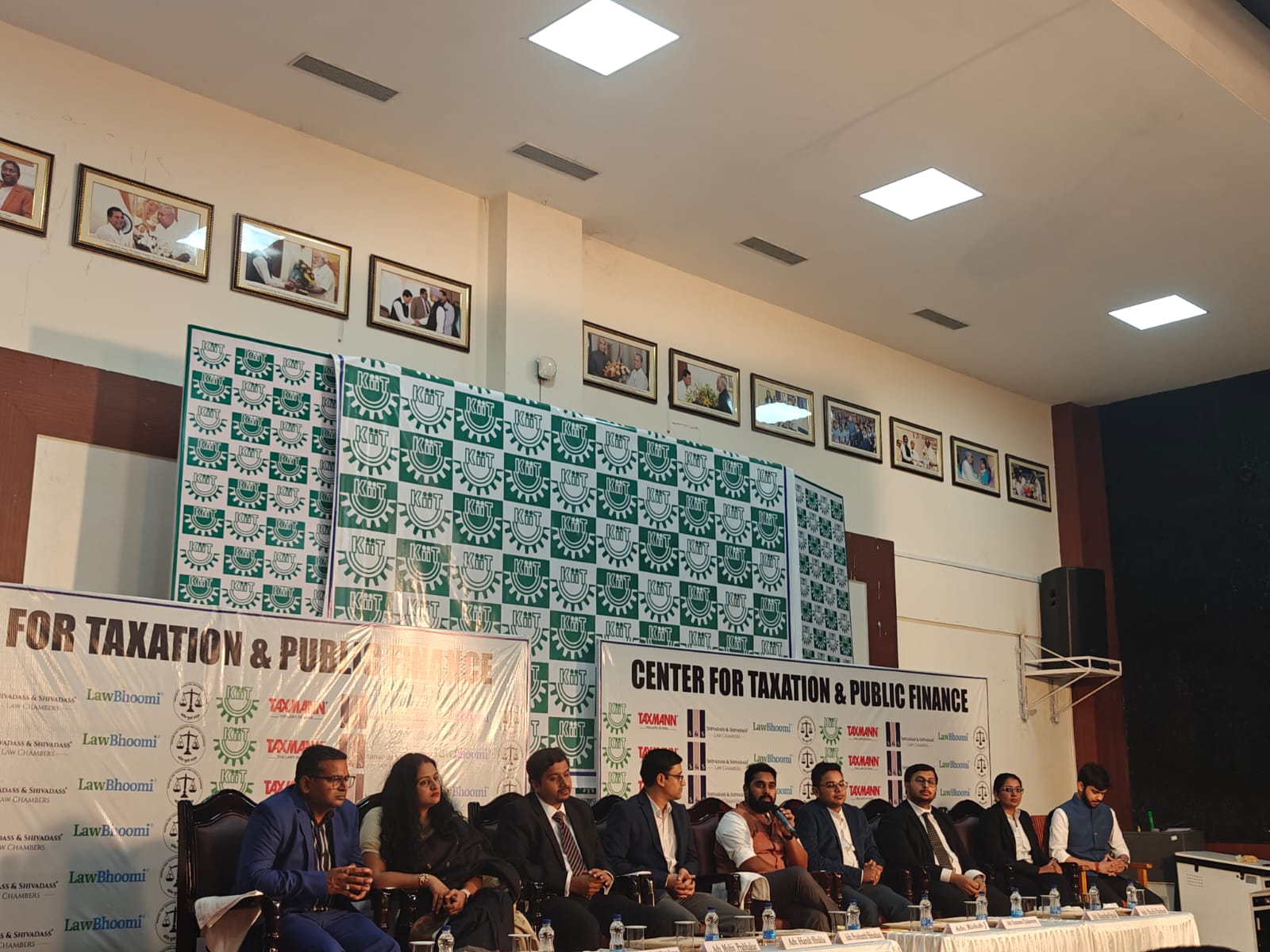The inaugural Tax Conclave, organised by the KIIT Centre for Taxation and Public Finance on 24–25 May 2025 at KIIT School of Law commenced with powerful insights and in-depth discourse on the Income Tax Bill, 2025: Policy, Governance and Fostering Growth. Day 1 of the 1st Tax Conclave opened with an engaging discussion on the often-overlooked yet critical domain of tax litigation and its growing significance in today’s economic and legal framework.
We were honoured to have Mr. Prashanth Shivadass, Managing Partner at Shivadass and Shivadass (Law Chambers), as our Guest of Honour. His inaugural address not only set a visionary tone for the event but also reflected the firm’s ongoing commitment to shaping thought leadership in law and public finance.
Mr. Prashanth Shivadass’s perspectives extended beyond his expertise in Antitrust, Competition Law, and Digital Personal Data Protection (DPDP). He offered a compelling analysis of digital privacy concerns within the expanding search and seizure powers of tax authorities. He delved into the intricacies of the faceless assessment and appeals process, highlighting its impact on transparency, accountability, and the broader digital tax landscape.
Panel Discussion Highlights: A dynamic and thought-provoking panel brought together a stellar lineup of professionals: Mr. Rishab J examined the implications of removing the indexation benefit in capital gains taxation. CA Rakesh Gupta provided an auditor’s lens on procedural changes under the new Income Tax Bill. Dr. Ananya Bharadwaj, Ph.D. and Mr. Mohit Prabhakar discussed the paradox of simplification vs. legislative clarity. Mr. Manohar Samal, MCIArb addressed the growing relevance of BEPS frameworks in the digital economy. Ms. Ruchi Rathod emphasized the risk of misinterpretation stemming from oversimplified statutory language. Mr. Harsh Shukla elaborated on the broader ramifications surrounding the indexation debate. Mr. Sumonto Chakravarty, in interactive mentoring sessions, provides students with pointed, constructive feedback on their presentations.
A key focus was the faceless assessment and appeals process, while lauded for reducing discretion and enhancing transparency, panelists cautioned against over-reliance on automation in contexts demanding human interpretation. The consensus called for a balanced integration of technology with judicial prudence, alongside improved procedural safeguards to uphold natural justice.
The second half of the day featured student paper presentations, enriching the event with innovative perspectives and forward-looking analysis from emerging voices in tax law. We extend our deepest appreciation to our expert panelists, dedicated participants, and talented students for shaping Day 1 into a powerful academic and professional milestone.
The second day of the conclave witnessed an engaging and thought-provoking panel discussion on some of the most significant provisions of the Income Tax Bill, 2025.
Ms. Ishita Farsaiya shed light on the reassessment process, explaining how the proposed framework enhances procedural clarity and aims to strike a balance between taxpayer rights and revenue interests. Her insight on timelines and information triggers under the new scheme offered a practical perspective for both practitioners and academicians.
Ms. Gauri Singh walked the audience through the GAAR (General Anti-Avoidance Rules) in the new Bill, elaborating on how the revamped provisions aim to curb aggressive tax planning while ensuring fair application and greater transparency in interpretation.
Mr. Ishan Bhatt addressed an important query on Virtual Digital Assets (VDAs) and provided a concise yet comprehensive explanation of how the new Bill seeks to define, classify, and tax digital assets—marking a significant shift in digital economy taxation. With such dynamic deliberations, the conclave continues to foster critical dialogue on reform, compliance, and growth.
Ms. Shraddha Rajgiri delivered a compelling address on the evolving tax treatment of Virtual Digital Assets (VDAs) and the reassessment regime under the Income Tax Bill, 2025. She examined the practical challenges in regulating VDAs, emphasizing the need for clarity in valuation and enforcement. On reassessment, she raised a critical interpretative question: to what extent can judicial precedents be relied upon when the statutory language they were based on has been amended? Citing landmark judgments, she underscored that while constitutional doctrines may retain relevance, materially altered provisions will require fresh judicial scrutiny, urging practitioners to adopt a nuanced, purpose-driven approach under the new framework.

